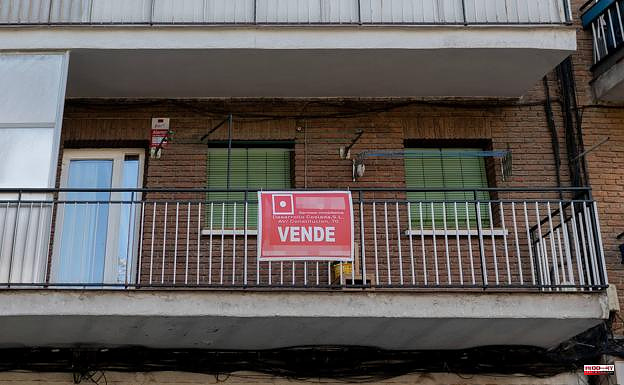The twelve-month Euribor has shown negative numbers for six years. This indicator is used to calculate variable-rate mortgages. It rose to 0.287% in May, 27 basis points higher than April (0.13%) and 76 more points than one year ago (0.4881%). This was due to tightening monetary policy by the United States Federal Reserve (Fed), who has increased interest rates to limit inflation.
Around four million Spanish mortgages are being signed at a variable rate linked to the Euribor. This will lead to an average increase of 600 euros per year in prices. It is also worth noting that the Euribor has traded positively since February 2016 and it has continued to increase since April 12. This means that mortgages at variable rates are now more expensive.
A mortgage with an average value of 150,000 euros and a differential of 1.1% on the Euribor, which is subject to an annual review, will cost a fee of 658 euro per month. This will result in a monthly increase of 51 euros or 613 euros each year. It registered a daily rate at 0.390% on Tuesday, the last day in May. This is an average of 0.287% per month.
The European Central Bank (ECB), will also follow the Fed's lead and raise the money price in July. Christine Lagarde (the president of the ECB) recently stated that July's meeting will be the best time for the first increase in the interest rates in the Eurozone in over a decade.
The agency will therefore leave behind negative interest rates by the end the third quarter. The end of the ECB's ultra-expansive policy in July changed the Euribor's downward trend. It reached a historic low of -0.502% in December 2021. Everything points to the fact that this index will continue rising throughout the year due to the July rate hike.
The Bankinter Analysis department predicts that the index will close at 0.4%, and 0.8% next year. However, CaixaBank analysts believe that it could rise to 1% next year. HelpMyCash experts warn that changing from a fixed to variable mortgage in these times of economic uncertainty is a mistake. This applies only to clients who are requesting a short-term mortgage, or who know they can cancel it quickly.
Simone Colombelli (director of Mortgages at iAhorro) pointed out that variable-rate mortgage holders have benefited for a full year from a low Euribor. It is now returning to its normal terrain. Columbus stated that the 2021 experience was exceptional. They have had good conditions for 12 months and are now experiencing a very favorable situation if they keep at 1%.
According to INE data, 73% of mortgages in March were at a fixed rate. Only 27% were at a variable rate. This continues the trend from the previous years when almost half of mortgages were of this type. This will lessen the effect of fluctuations in Euribor.












